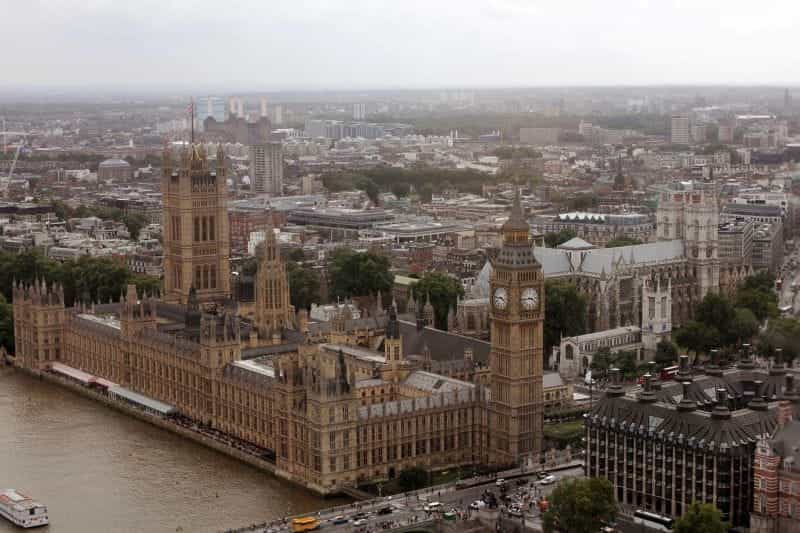BGC Calls for Gambling Ombudsman
The Betting and Gaming Council has called on the UK government to introduce a new gambling ombudsman to handle customer complaints. The standards body has made the recommendation as the government is in the midst of reviewing its gambling laws. The BGC is not the only body to have called for an ombudsman, joining campaigners and ministers insisting on changes to the industry.

The BGC has joined campaigners and MPs in calling on the government to introduce a gambling ombudsman. ©Michaela/Pexels
Improve Consumer Protections
The Betting and Gaming Council represents 90% of the UK’s bookmakers, casinos and online operators as the gambling industry’s standards body. By working alongside its members, it strives to raise standards, promote safer gambling and boost public trust. When BGC members sign up, they commit to a strict code of conduct.
In its latest bid to make the gambling industry a better and safer place for consumers, the BGC has called on the government to introduce a new gambling ombudsman. That call echoes the concerns of campaigners and MPs that have also called for improvement on how the industry is governed.
The government’s Gambling Act Review is currently underway and ministers are expected to publish a white paper by the end of the year. If the ministers in charge of the review heed the BGC’s call, an ombudsman could be brought in with the new legislation.
The current gambling act was brought in in 2005, by Tony Blair’s Labor government. It famously revolutionized the UK’s gambling industry, promising mega casinos and a boom for business. While the mega casinos never came to fruition, the UK’s gambling scene has thrived and become one of most competitive industries in the world.
However, since being introduced in 2005 many of those laws have become outdated. In particular, the rise of the internet and online gambling is not properly legislated for. The government now hopes to bring the analogue laws up to date with the digital age.
Consumer protections have become a key issue for the review. Campaigners have criticized particular industry practices, such as the VIP schemes offered by online casinos and the number of gambling adverts aired on television and in live sports. Many of these issues disproportionately affect children and people who are already vulnerable to gambling harms.
Flutter Backs Call
While the Betting and Gaming Council has always been in support of the government’s review, it has raised concerns that bringing in too many strict changes could drive consumers into the arms of black-market operators. Warning of the “dangers of complacency”, it says that illegal gambling sites are already on the rise.
In light of this stance, the BGC’s support for an ombudsman is significant. According to BGC CEO Michael Dugher, backing the creation of a gambling ombudsman is proof that the industry is committed to driving up standards. While there are already systems in place to deal with customer complaints, an ombudsman would streamline that process and make it more consistent.
The BGC has proposed that it should be made a legal requirement that all betting and gaming operators licensed in the UK must sign up to the new ombudsman. Stating the BGC’s support for an ombudsman and reiterating its support for the Gambling Act Review, Dugher said:
“The BGC and its members recognize the need for further change in our industry and a new Gambling Ombudsman would be a step forward in customer redress – I’m proud to be giving it our backing.”
As the gambling industry’s representative voice, the BGC’s support for an ombudsman shows that operators themselves are also open to the idea. One such operator that has echoed its support for the move is Flutter Entertainment. CEO Conor Grant explained that Flutter’s business is focused on offering customers safe entertainment, adding:
“True commitment to putting customers first also means making sure that they have somewhere independent to go if something does go amiss – that is why Flutter is fully behind the call from the BGC today for the Government to include an Ombudsman in its plans for reform of the gambling industry.”
Campaigners Call for Change
If brought in, a new ombudsman would not replace the Gambling Commission. It would offer a service for consumers to submit their cases for investigation. For it to work successfully, all operating license holders would be expected to sign up. It would also be funded by the industry, rather than the government.
The ombudsman would not rule on regulatory matters or license conditions, which would still be under the remit of the Gambling Commission. The regulator has come under fire for failing to protect consumers adequately, most recently in the collapse of sports betting platform Football Index. The platform’s operator BetIndex has since gone into administration and had its license revoked.
It is thought that platform users may have lost as much as £90 million in total. The Gambling Commission is now under investigation for its handling of the operator’s license. The revelation that it seemingly ignored warnings about Football Index’s business model a year prior to the collapse have caused particular concern.
This case has only amplified calls from campaigners to overhaul the regulator and create an independent ombudsman. Former deputy leader of the Labor party Tom Watson suggested the idea two years ago and has since moved on to become a senior advisor on problem gambling at Flutter Entertainment. The Social Market Foundation has also recommended an ombudsman.
The Gambling Related Harm APPG, led by MP Carolyn Harris and Sir Iain Duncan Smith, included an ombudsman as part of its wider call for gambling reforms. It says that a gambling ombudsman is urgently needed to oversee affordability checks, with a soft cap of £100.
Sir Iain Duncan Smith’s think tank, the Centre for Social Justice, has also supported the introduction of an independent ombudsman. It outlined plans that would see the ombudsman analyze banking data to identify consumers affected by gambling harms. By pinpointing those at risk, it would be able to effectively target protections.



